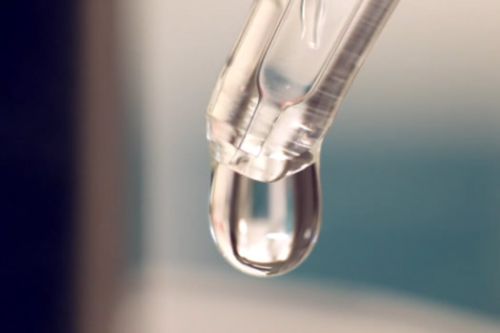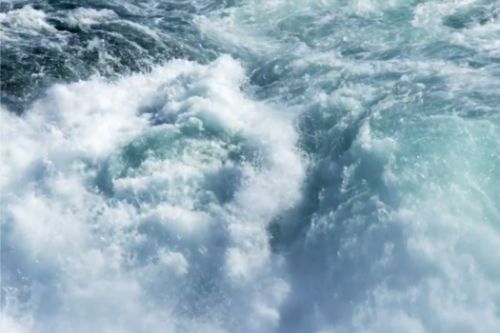Standards
Our aim is to create an environmental culture change in the use of chemicals in closed loop water systems
Technical water must comply with the technical standards set out by manufacturers, and trade associations in terms of its chemical and physical properties.
Standards increase the availability of components, reduce production costs, increase energy efficiency and allow for warranty claims and consumer protection.
Germany (VDI 2035, Part 1 and 2)
Heating water in accordance with SWKI BT 102–01, directive of the Swiss Society of Building Technology Engineers.
Since 1 April 2012, there have been new regulations in Switzerland relating to the fill water quality of all DHW heating systems. The supplier shall only provide an express warranty if these standard values have been observed. This will also ensure high efficiency for a sustained period.

Responsibility
Design engineering ensures that the standard values in the heating water are observed. The commissioning parameters are to be recorded in a handbook, which is to be handed over by the installer or design engineer to the operator. This handbook should then be kept up to date by the operator.
Heating system warranty
Most manufacturers link their warranty for the components to the observance of water quality.
Values
VDI 2035, Part 2, makes a distinction between operation with low salt content and saline operation. The probability of corrosion generally decreases as the electrical conductivity of the heating water falls, which means that operation with low salt content is often preferred in practical applications. Operation with low salt content requires demineralisation of the water to < 100 μS/cm, permits an oxygen content of 0.1 mg/l in the heating water and calls for a pH of 8.2–10.0.
According to VDI 2035, Part 2, the addition of chemicals should be limited to exceptional cases.
Analyses
When system is being designed, the water hardness must be determined (VDI 2035, Part 1).
Initial monitoring of the heating water is recommended 8–12 weeks after commissioning, but at the latest as part of the next annual service (VDI 2035, Part 2).
Austria (ÖNORM H 5195–1)
Heating water in accordance with ÖNORM H 5195–1 of the Austrian Standards Institute.
This ÖNORM sets out requirements for design, installation and operation to prevent corrosion damage, scaling and deposits in sealed DHW heating systems with operating temperatures of up to 100 °C.
It applies primarily to new systems.

Responsibility
The water must be analysed by the installer to determine suitability before the system is filled.
The operator of a heating system with a water content of up to 5000 litres must arrange for the heating water to be tested every two years, or at least once a year for systems with a water content above 5000 litres.
Heating system warranty
Most manufacturers link their warranty for the components to the observance of water quality.
Values
ÖNORM H 5195–1 sets out the limit for the hardness of the fill water subject to the water content and type of the heat source within the heating system. As a maximum limit of < 30 mg/l also applies to chlorides, the fill water is often demineralised.
If aluminium materials are present, the pH value should not exceed 8.5. If no aluminium materials are present, the pH value should be between 8.2 and 10.
Analyses
When carrying out work on the heating system that involves water loss or a change in the water content, a heating water test should be arranged by the operator within 4–6 weeks. The tester is obliged to notify the operator or owner within 4 weeks whether the existing heating water is corrosive or shows signs of microbiological growth. The results of the investigation should be documented in the handbook.
Switzerland (SWKI BT 102–1 )
Heating water in accordance with SWKI BT 102–01, directive of the Swiss Society of Building Technology Engineers.
Since 1 April 2012, there have been new regulations in Switzerland relating to the fill water quality of all DHW heating systems. The supplier shall only provide an express warranty if these standard values have been observed. This will also ensure high efficiency for a sustained period.

Responsibility
The contractor is responsible for the fill water quality (as per SIA 384/1 and SWKI directive BT 102–01). If the heating system is removed, responsibility passes to the owner. The heating contractor is obliged to observe this requirement.
Heating system warranty
Most manufacturers link their warranty for the components to the observance of water quality.
Values
The heating water in the heating system should have a hardness lower than 5 °f and a conductance value below 200 μS/cm. Any top-up water must have a hardness below 1 °f and a conductance below 100 μS/cm. The heating water must always be demineralised. The required pH value is between 8.2 and 10.0 and is only reached 2–3 months after the system has been filled with fresh water.
Analyses
Fill water must be analysed before the system is filled (Art. 5, SWKI BT 102–01).
Initial check of the pH value after 2 months, or at least during the annual service. (Art. 4.2.2 c, SWKI BT 102–01).
The water analysis must be recorded. (Art. 5 SWKI BT 102–01).
clean, prevent, protect
Contact us to discuss how our chemical-free water treatment solutions can deliver instant ROI
